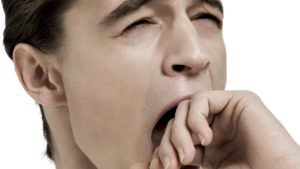
It’s national sleep day so we’re giving you the best advice on how to prepare your body for a great night’s sleep.
We know what we eat affects how good we feel. But did you also know your diet can influence how well you sleep? A massive 30 per cent of us suffer from sleep problems, according to sleep expert Dr Neil Stanley – but this link between food and sleep is often forgotten.
Snooze foods
Ever felt sleepy after a late-night banana? Eating certain food before bed may help you nod off, particularly those containing tryptophan – an amino acid that
increases the brain’s serotonin levels. This ‘happy hormone’ creates a feeling of wellbeing and safety, promoting sleep. Sammy Margo, author of The GoodSleep Guide (Vermilion, £9.99), says: ‘A 2005 study of people with insomnia found diet made a big difference. After three weeks,those who ate foods containing tryptophan slept better.’The foods naturally highest in tryptophan are bananas and turkey. But Marmite, dairy products, almonds, sunflower seeds, dates, tofu and eggs also contain it. ‘Eat foods that contain tryptophan alongside healthy carbs, as this helps it get to the brain faster,’ advises Margo. Or try the supplement 5-HTP*, a chemical that tryptophan is metabolised into which is then converted into serotonin. Studies show 5-HTP may improve sleep quality.
Get your oats
Oats are another ‘snooze food’. As well as tryptophan, they contain melatonin, released by the pineal gland when it gets dark to regulate your body clock. ‘People have oats for breakfast, but actually you should eat them for dinner,’ says Margo. Try porridge with warm milk – or a few oatcakes – before bed. Sweetcorn, tomatoes, rice, tart cherries and ginger also contain small amounts of melatonin. Lettuce love Try a green salad with your supper, as lettuce contains a chemical related to opiates called lactucarium. A bedtime mug of hot milk is another insomnia-fighter. A 1972 study showed participants slept longer and were less restless after a hot milky drink before bed.
What not to eat
Spicy or fatty food While some foods help you sleep, others have the opposite effect. Spicy, sugary, high-protein or high-fat foods eaten late can lead to sleep-busting heartburn or indigestion. A study in Brazil found volunteers who ate an evening meal that was high in fat had less deep REM sleep.

